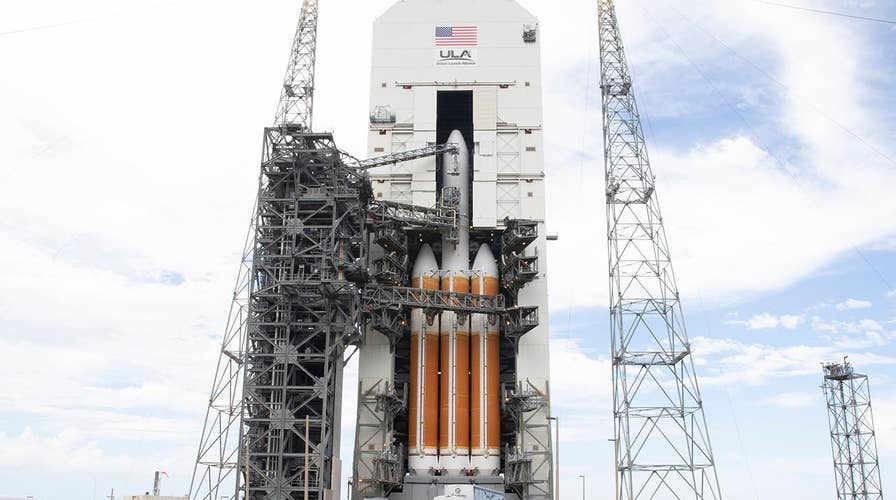NASA’s Parker Solar Probe honors pioneering 91-year-old scientist
NASA’s historic Parker Solar Probe is the space agency’s first spacecraft to be named after a living individual.
The eagerly anticipated launch of NASA’s Parker Solar Probe was scrubbed early Saturday when delays on the launch pad ate away at the spacecraft’s 65-minute window to blast off to the sun.
Crowds had gathered at Kennedy Space Center in Florida to see the Solar Probe embark on its incredible journey from nearby Cape Canaveral Air Force Station.
Sitting atop a United Launch Alliance Delta IV Heavy rocket, the Solar Probe was initially scheduled to launch from Cape Canaveral’s Space Launch Complex 37 at 3:33 a.m. EDT. Onlookers watched tensely as the launch-time was pushed back to 3:53 a.m. EDT, eating into the 65-minute launch window. The launch was scrubbed about 2 minutes from the end of the launch window.
NASA'S PARKER SOLAR PROBE: CAPE CANAVERAL PREPARES FOR EPIC MISSION TO THE SUN
“The launch of a ULA #DeltaIV Heavy carrying the Parker #SolarProbe spacecraft was scrubbed today due to a violation of a launch limit, resulting in a hold. There was not enough time remaining in the window to recycle,” tweeted ULA.
"The team received a gaseous helium red pressure alarm that kicked them out," said Mic Woltman of NASA's Launch Services Program in NASA's Live TV commentary, according to Space.com. ""The team is evaluating that and looking at it."
A new launch time has been set for 3:31 a.m. EDT Sunday.
NASA'S PARKER SOLAR PROBE SET TO WRITE NEW CHAPTER IN CAPE CANAVERAL
The $1.5 billion mission will take humanity closer to the sun than ever before. Parker will be the first spacecraft to fly through the sun’s corona, the outermost part of the star’s atmosphere. It is expected to reach the sun in November.
Parker will face “brutal” heat and radiation during an epic journey that will take it to within 3.8 million miles of the sun’s surface, according to the space agency. This is seven times closer than the previous closest spacecraft, Helios 2, which came within 27 million miles of the sun in 1976.
Follow James Rogers on Twitter @jamesjrogers









































